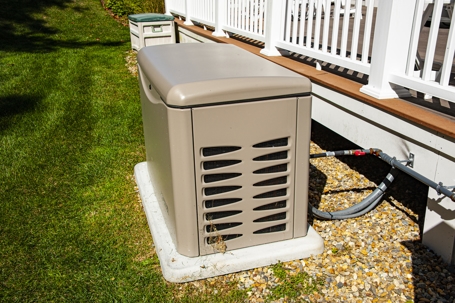Portable generators and standby generators are two popular options if you need an uninterrupted power supply during emergencies or power outages. However, choosing between the two can be a confusing task for homeowners. Below, we will help you compare portable and standby generators by discussing their pros and cons to help you decide on the best investment for your electrical needs.
Understanding the Differences Between Portable Generators and Standby Generators:
1. Power Capacity:
- Portable Generators: These generators typically have a power capacity ranging from 1,000 to 10,000 watts. They are most suitable for powering essential appliances and electronics during emergencies or outdoor activities.
- Standby Generators: With power capacities ranging from 5,000 to 150,000 watts, standby generators are designed to provide backup power to your entire home or business. They are permanently installed and automatically activate during power outages.
2. Fuel Source:
- Portable Generators: Most portable generators run on gasoline, which is readily available but requires regular refueling. Some models also offer the option to use propane or natural gas, providing more versatility.
- Standby Generators: Standby generators are usually connected to your home's natural gas or propane supply, ensuring a continuous fuel source without needing manual refueling.
3. Installation and Convenience:
- Portable Generators: These generators are easy to transport and require minimal installation. (For instance, many people take portable generators when camping.) However, they must be manually started outdoors, well away from any doors or windows, and during windy or stormy weather, this can be inconvenient and even dangerous.
- Standby Generators: Standby generators require professional installation and are permanently connected to your electrical system. They automatically start within seconds of a power outage, providing seamless backup power without manual intervention.
4. Noise Level:
- Portable Generators: These generators tend to be louder due to their smaller size and the need for air cooling. Noise levels can range from 60 to 90 decibels, depending on the model.
- Standby Generators: Standby generators are designed to operate quietly, with noise levels typically ranging from 50 to 70 decibels. This makes them suitable for residential areas where noise regulations may apply.
5. Cost Considerations:
- Portable Generators: Portable generators are generally more affordable upfront, with prices ranging from a few hundred to a few thousand dollars. However, ongoing fuel costs and maintenance expenses should also be factored in.
- Standby Generators: Standby generators are a significant investment, with prices starting from several thousand dollars and varying based on power capacity and installation requirements. However, they offer long-term reliability and convenience.
Conclusion:
Choosing between portable and standby generators depends on your specific needs and budget. Portable generators are ideal for temporary power solutions, while standby generators provide a seamless and reliable backup power source. When deciding, consider factors such as power capacity, fuel source, installation requirements, noise levels, and long-term costs.
At Global Power & Ac Corp, we understand the importance of having a reliable power backup system. Our team of experts can help you assess your electrical needs and recommend the best generator solution for your home or business. Contact us today to learn more about our portable and standby generator services.

